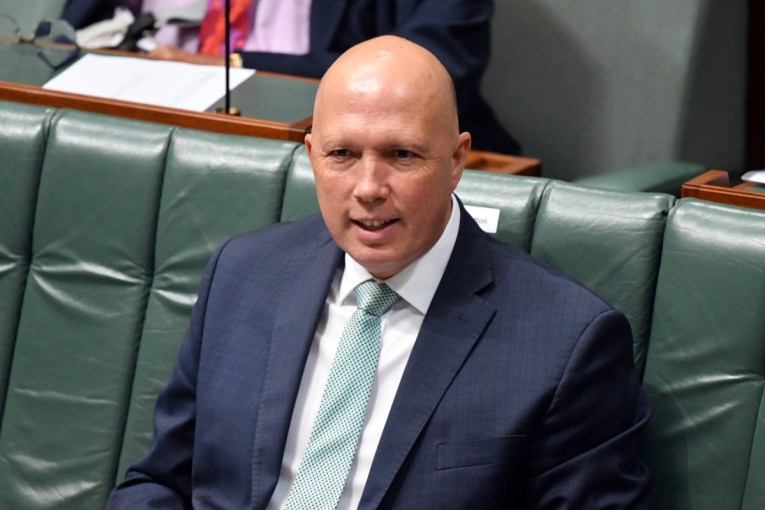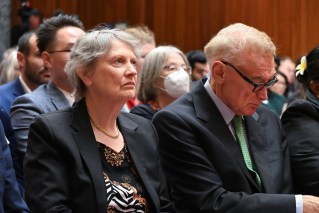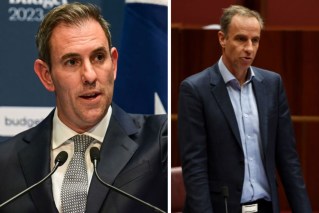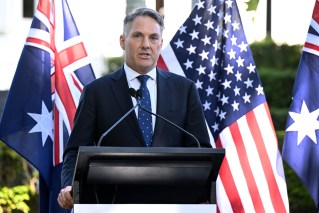Alan Kohler: Social repair, especially fixing Medicare, must trump budget repair


Photo: Getty/TND
Health Minister Mark Butler said on Friday that fixing Medicare is “not just about more money”. Well, maybe not, Minister, but it’s mainly just about more money, with daylight second.
Health care is about money for both the government and for patients: Some young couples with toddlers that I know have seen their mortgage repayments increase about $1000 a month in a year and are now finding the $90 for a visit to the doctor impossible.
This is why more people are presenting at public hospitals. Bulk billing? Forget it.
As for how much money it means for the government, Mark Butler also said that the average gap fee for a standard GP consultation is now more than the Medicare rebate for the first time in its 40-year history.
Medicare rebates cost the budget $37.6 billion in 2021-22, so presumably increasing it enough to absorb the average gap would cost another $37.6 billion (or more), which puts the government proposed spending on fixing Medicare of $250 million a year into sharp context.

‘An inexorable slide’: Mark Butler. Photo: AAP
The usual charts produced by the doctors’ union to argue that their rebate has fallen in real terms show Medicare payments have increased 80 per cent since 1984-85, while the CPI and average weekly earnings have increased 240 per cent.
The rebate has been frozen for six years and, as Mark Butler also reported, less than 14 per cent of medical graduates are choosing general practice as a result.
He added: “That figure is on an inexorable slide”. If you think it’s hard seeing a GP now, he said, wait till the current generation retire in five to 10 years’ time.
The doctor will see you … sooner or later
It certainly is hard now. The wait time to see our local GP is currently three weeks.
Why is there a GP shortage? Because they don’t get paid enough. That’s almost the whole problem (they’re demoralised as well, but that’s because they don’t get paid enough).
The complex set of reforms proposed by the Strengthening Medicare Taskforce in its landmark, err, 10-page report are fine and overdue, but it’s mainly about the money.

More doctors are abandoning bulk billing due to low fee-for-service payments. Photo: AAP
The same goes for aged care, child care, NDIS and defence – it’s all about more money.
The demands on the federal budget are suddenly gigantic because the previous Coalition government was buried in the religion of low taxes and balanced budgets for 10 years, not that it actually managed to achieve either, but it proselytised and squeezed government spending because that’s what this theology is about – small government.
That religion was also behind the cruelty of Robodebt, the details of which are now being revealed in the royal commission run by Catherine Holmes SC.
What we are seeing almost every day is the damage done by Coalition austerity and mismanagement. This is not left/right politics but simply administrative competence overwhelmed by ideology.
An inherited mess to clean up
So fixing Medicare and the health system, along the rest of the mess left by the Coalition, begins with the budget coming up in May.
Mark Butler said on Friday that Medicare is “not going to be fixed in one budget”, which is true of course, but this one will set the scene for future budgets, showing how Labor plans to tackle the mess left by the previous tenants and what its own priorities are.
The budget last October forecast a deficit for this financial year of $36.9 billion, and for 2023-24 – which will be the focus of the May budget – of $44 billion.
But those deficits are going to be much less than expected. The Department of Finance’s monthly statement for December shows a deficit of $14.7 billion for the first six of this financial year, a big improvement from the $26.2 billion in the October budget for the same period.
There is even talk now that the May budget will show a surplus for the 2022-23 financial year because of the huge increase in coal, gas and oil prices, in turn because of the Russian invasion of Ukraine. If it does, then the budget must go back into deficit in 2023-24 and stay there.
Treasurer Jim Chalmers, exponent of “values-based capitalism”, should not even think of continuing to run a surplus.
Budget repair is far less important than Medicare being properly funded, or NDIS, aged care and child care. These things need money for the proper functioning of Australian society; the deficit, and government debt, are just numbers on a screen.
Bottomless pits
To some extent they are bottomless pits and would absorb whatever amount of money the Treasurer threw at them, but it’s perfectly clear that the money being thrown at the moment is not enough.
Specifically, those working in the care industries – including GPs – aren’t being paid enough, which means not enough people are prepared to do it, resulting in shortages.
And it isn’t feasible to shift more of the cost onto users because they’re already struggling with higher prices for everything, along with higher interest rates designed to deal with the higher prices for everything.
It’s admittedly complicated by the fact that the Reserve Bank is trying to slow the economy by crushing already struggling families with higher interest rates, so the last thing we want is for fiscal stimulus and budget deficits to result in more rate hikes.
But making up for the under-funding of previous years is not fiscal stimulus, or budget repair.
Let’s call it social repair.
Alan Kohler writes for The New Daily twice a week. He is also founder of Eureka Report and finance presenter of ABC news








